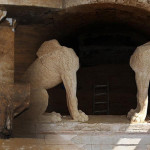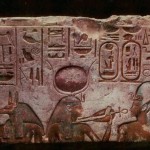Lost Epic of Gilgamesh New Verse Found
A once lost treasure from Iraq has been recovered that reveals a lost verse of the epic tale of Gilgamesh.
A museum in Kurdistan has made a deal with a known smuggler of artifacts which includes the lost clay tablet from the Babylonian empire.
This recovered verse was translated in 5 days and sheds new light onto the ancient tale especially about the Cedar Forrest described in the poem.
The Epic of Gilgamesh is an epic poem from ancient Mesopotamia. Dating from the Third Dynasty of Ur (circa 2100 BC), it is often regarded as the first great work of literature. The literary history of Gilgamesh begins with five Sumerian poems about ‘Bilgamesh’ (Sumerian for ‘Gilgamesh’), king of Uruk. These independent stories were later used as source material for a combined epic.
The first surviving version of this combined epic, known as the “Old Babylonian” version, dates to the 18th century BC and is titled after its incipit, Shūtur eli sharrī (“Surpassing All Other Kings”). Only a few tablets of it have survived. The later “Standard” version dates from the 13th to the 10th centuries BC and bears the incipit Sha naqba īmuru (“He who Saw the Deep”, in modern terms: “He who Sees the Unknown”). Approximately two thirds of this longer, twelve-tablet version have been recovered. Some of the best copies were discovered in the library ruins of the 7th-century BC Assyrian king Ashurbanipal.





